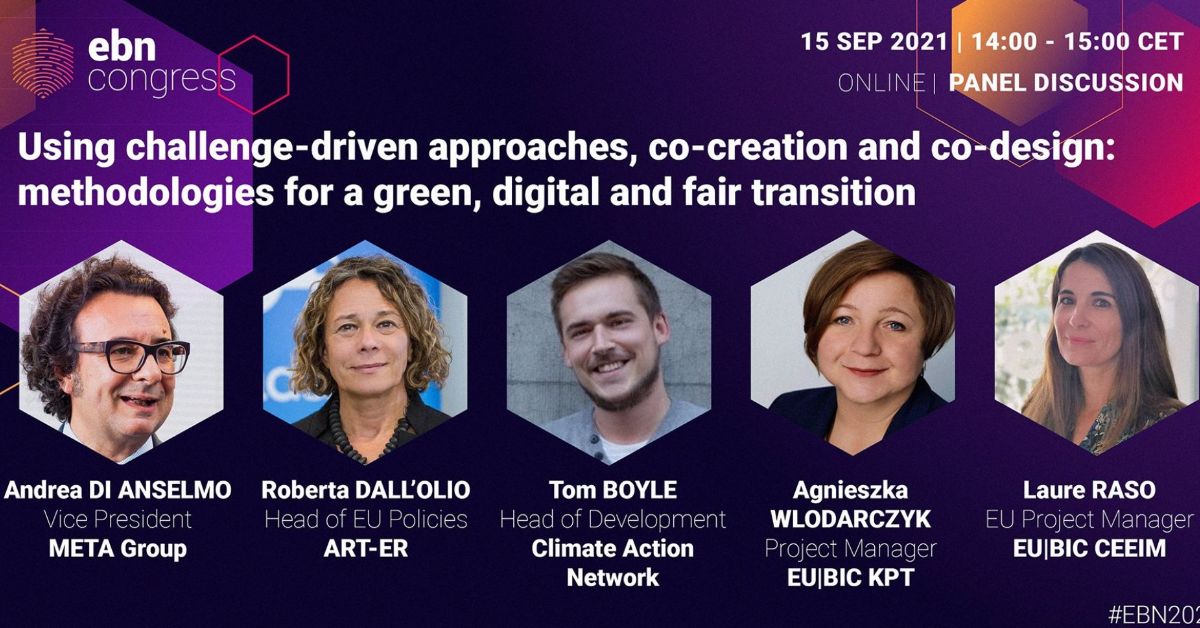CHERRIES project promoted a panel discussion at the EBN Congress 2021: “Using challenge-driven approaches, co-creation and co-design methodologies for a green, digital and fair transition”.
A bottom-up approach is required to develop effective and tailored solutions to market and societal demands. The challenges we face are more and more complex and cross-sectoral. A demand-driven approach to innovation, following co-design & co-creation methodologies creates solutions that are lasting, sustainable, green, and in accord with the digital transformation in society. The panel explored how the EU|BIC community, with its business models and service offering, is ideally positioned to connect innovators and promote challenge-driven, co-created and co-designed innovation. With a focus on experiences addressing climate neutrality and health, the panellists shed light on:
- Why regions should invest in demand-driven innovation and how co-creating solutions can bring about change;
- Why we need to embed demand-driven innovation in incubation, and how co-creation methodologies can drive towards efficient, fair and sustainable responses;
- How to implement these methodologies in decision-make processes adopted by local authorities, incubators, start-ups, and business.
In this occasion Laure Raso from CEEI Murcia presented the CHERRIES methodology and activities in front of policy intermediaries, entrepreneurs, investors and researchers. The aim of the session was to discuss the importance and future co-creation and co-design methodologies to address regional challenges.
Moderated by Andrea Di Anselmo, META Group, the panel saw the participation of Laure Raso (CEEI Murcia Project Manager), Roberta Dall’Olio (ART-ER EU Policies International Territorial Cooperation Social Innovation Head of Unit and EURADA President), Tom Boyle (Climate Action Network Head of Network Development), Agnieszka Włodarczyk-Gębik (Krakow Technology Park Project Manager).
You can find the recordings of the panel at EBN Congress 2021 here.
